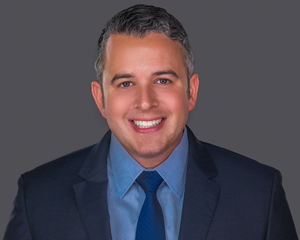Being targeted in a Medicare or Medicaid fraud investigation by the U.S. Department of Justice (DOJ), the Office of Inspector General (OIG), or another federal agency can be devastating for healthcare providers. Whether triggered by a whistleblower complaint, data analytics, or routine audit, these investigations often result in criminal charges, civil penalties, exclusion from federal programs, and loss of licensure.
At Di Pietro Partners, our healthcare fraud defense attorneys represent doctors, practice managers, billing companies, and healthcare businesses under investigation for alleged billing fraud, kickbacks, false claims, and regulatory violations. We understand the nuances of CMS regulations, Stark Law, the Anti-Kickback Statute, and the False Claims Act; we know how to protect your license, reputation, and livelihood.
What is Medicare or Medicaid Fraud Defense?

Medicare and Medicaid fraud defense is the legal representation of healthcare providers, practices, and businesses accused of improper billing or violations of federal and state healthcare laws. These cases often begin with an audit, records request, or investigation and can involve allegations such as upcoding, unbundling, medically unnecessary services, kickbacks, or false documentation.
Effective defense focuses on protecting the provider’s license and livelihood, responding strategically to investigators, and resolving issues before they escalate into repayment demands, exclusions, or criminal charges.
What Triggers Medicare/Medicaid Fraud Investigations?
You may be under scrutiny without even knowing it. Federal fraud investigations are often triggered by:
- A whistleblower (qui tam) lawsuit filed by a former employee or competitor
- Data analysis showing billing patterns outside the norm
- Routine audits by CMS or MACs (Medicare Administrative Contractors)
- Prior disciplinary action or licensing complaints
- Referrals from private insurers or Medicaid MCOs
- Once initiated, these cases move quickly and can involve multiple agencies with overlapping jurisdiction.
Types of Allegations We Defend
Our attorneys defend individuals and healthcare organizations against a wide range of fraud-related allegations, including:
- Upcoding or unbundling of CPT codes
- Billing for services not rendered
- Kickbacks in violation of the Anti-Kickback Statute
- Self-referrals under the Stark Law
- Improper use of modifiers or false documentation
- Double billing or phantom claims
- Violation of CMS billing protocols
- Fraudulent DME or telehealth claims
Whether you’re facing civil penalties or criminal charges, we provide aggressive legal defense at every stage.
Agencies Involved in Healthcare Fraud Enforcement
Fraud investigations often involve multiple overlapping agencies, including:
- U.S. Department of Justice (DOJ)
- Office of Inspector General (OIG)
- Centers for Medicare & Medicaid Services (CMS)
- Medicaid Fraud Control Units (MFCUs)
- Federal Bureau of Investigation (FBI)
- State Attorney General’s Office
Our team knows how to navigate these agencies and respond effectively to subpoenas, CID letters, audits, and interviews.
What to Do If You’re Under Investigation
If you receive notice of an investigation, audit, subpoena, or interview request:
- Do not communicate directly with investigators without counsel
- Preserve all billing records, emails, and documentation
- Notify legal counsel immediately
- Do not alter or destroy any evidence
- Stay calm and avoid public statements
We assist clients from the earliest stages, often before charges are filed, and help contain the investigation before it escalates.
Why Hire Di Pietro Partners for Healthcare Fraud Defense
- Led by Former Prosecutors & Trial Lawyers
Our attorneys are experienced litigators with deep knowledge of federal enforcement tactics. - Deep Healthcare Regulatory Knowledge
We regularly advise hospitals, physicians, and specialty groups on Medicare billing compliance, helping us spot vulnerabilities before prosecutors do. - Multidisciplinary Team
We have a board-certified physician on staff, offering unique insight into medical practice standards and billing patterns. - Aggressive, Strategic Defense
We don’t wait for indictments. We intervene early, negotiate with federal agents, and mount proactive defenses to avoid criminal charges whenever possible.
Frequently Asked Questions
Q. Can I go to jail for Medicare fraud?
Yes. Medicare fraud can be prosecuted as a felony, with sentences ranging from 5 to 20 years depending on the charges. However, many cases can be resolved civilly if handled early by experienced defense counsel.
Q. What’s the difference between criminal and civil fraud?
Criminal fraud involves intent to defraud and carries jail time. Civil fraud involves monetary penalties and program exclusion. We handle both and fight to keep cases in the civil track whenever possible.
Q. Should I respond to an OIG subpoena without a lawyer?
No. Responding without counsel may harm your case. Contact an attorney immediately to ensure proper response and protection of your rights.
Q. Will I lose my medical license?
Not necessarily. While fraud investigations may trigger board discipline, many providers retain their licenses with the help of skilled legal defense.
Speak with a Healthcare Fraud Defense Attorney Today
If you or your practice is under investigation for Medicare or Medicaid fraud, don’t wait until charges are filed. The earlier you involve legal counsel, the better your chance of protecting your license, your freedom, and your future.
Contact Di Pietro Partners for a confidential consultation today.


